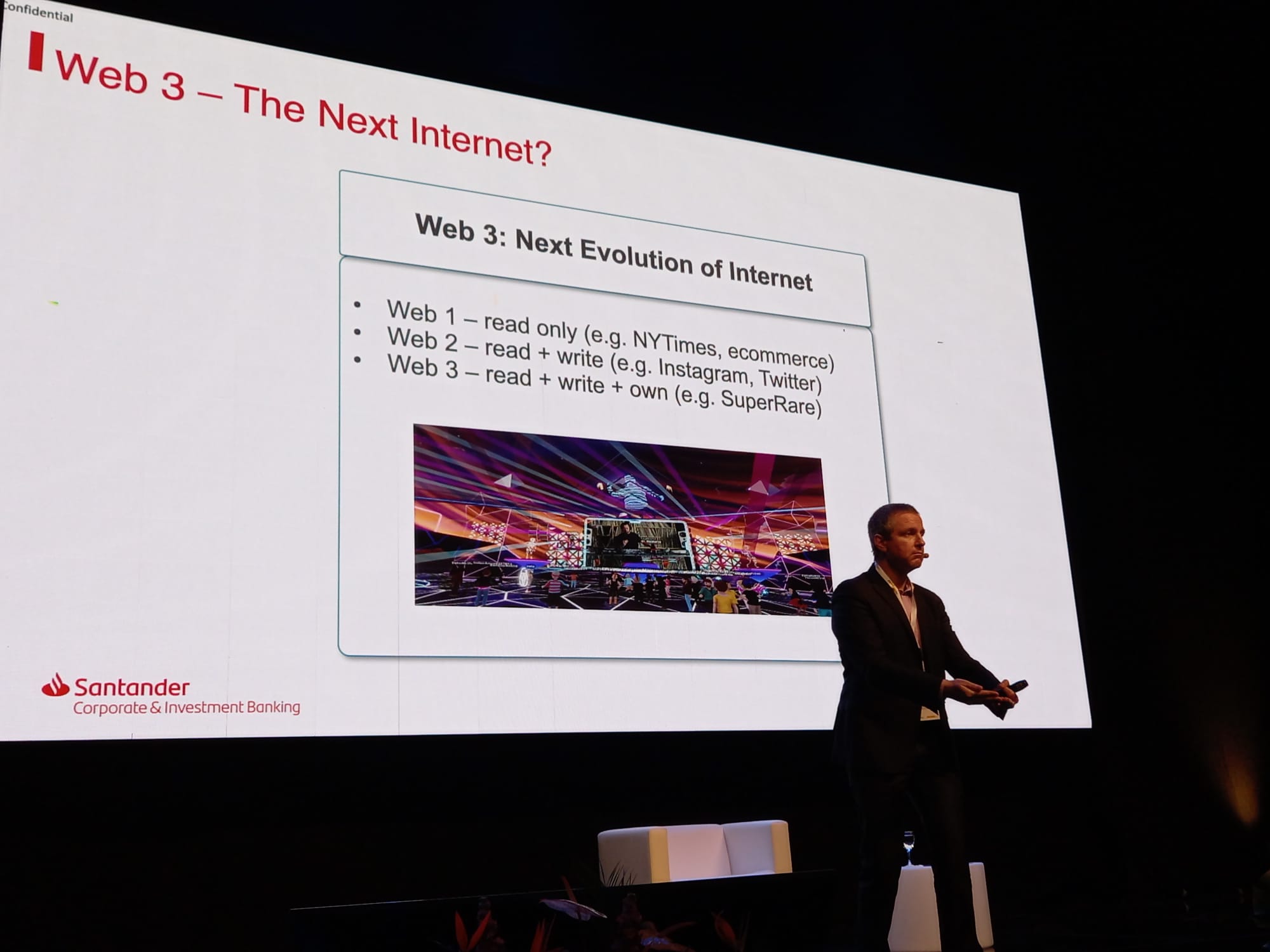From 13-15 December, the OECD Digital Economy Ministerial was held in Gran Canaria, bringing together delegations from 50 countries to discuss how governments can strike a balance between harnessing the benefits of the digital transformation and protecting individuals, society and economies from the risks it can create. The meeting included discussions on rights in the digital age, connectivity and other digital divides, the issue of online misinformation, and how to ensure that the digital transformation supports the green transition and net zero carbon goals.
In the framework of the OECD Ministerial Meeting on Digital Economy, Alastria co-organised the agenda dedicated to blockchain at the Win-Win Days, promoted by the Canary Islands Agency for Innovation, Research and Information Society of the Government of the Canary Islands.
Under the title “The next R-Evolution of Blockchain”, the blockchain agenda reviewed the most relevant aspects of DLT technologies:
John Whelan, CEO of Digital Assets and Cryptoassets of Grupo Santander, gave a keynote on what our digital future will look like, what is happening now in the blockchain universe and its evolution towards the #Web3. “The Web3 economy will be marked because everything of value will be digital, tokenised and programmable; agreements will be automated and digital identity will be controlled by its owners”.
Juan Jiménez Zaballos, CEO of Alastria, shared the most relevant blockchain trends for its impact in this decade, mainly regarding tokenisation, digital identity, digital assets. “The current maturity of the technology, standards and regulatory framework are favouring adoption in the business world,” he highlighted.
How Europe and Latin America are addressing the consolidation of infrastructures and ecosystems as drivers for the mass adoption of blockchain was addressed by Ángel Martín Bautista from the General Secretariat for Digital Administration, Albi Rodríguez Jaramillo from LACChain and Miguel Angel Domínguez, president of Alastria. Ángel Martín Bautista pointed out that Europe has looked to Spain’s experience in building the EBSI network and applications such as digital identity, in which Spain is a benchmark, will solve the problem of data sharing between the public and private sectors. “Spain has a unique opportunity to become an exporter of blockchain technology; the way to achieve this lies in public-private collaboration and that is what we are working on at Alastria”, said our president.
Finally, Oswaldo Brito Izquierdo (Canarias Excelencia Tecnológica), José David García Luna (Open Canarias) and Daniel Santana Martín (Edosoft Factory) shared a panel to highlight the value of the Canary Islands’ blockchain technology talent at the event.
You can watch the full day’s events here: https://www.youtube.com/watch?v=w3YRijXqpgQ
